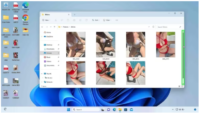A group of individuals and the non-profit Nova Scotia Civil Liberties Association are asking the Nova Scotia Supreme Court to quash recent changes to a law that give the province greater access to personal health records. “We have serious concerns about the constitutionality of what’s happened,” said James Manson, a lawyer representing the groups, in an interview on CBC Radio’s Information Morning. The application to the court argues that parts of Nova Scotia’s Personal Health Information Act and corresponding regulations infringe on the Canadian Charter of Rights and Freedoms. Read full…
Read MoreTag: Personal Data
Nova Scotia health data at risk due to ineffective cybersecurity: report | Global News
Nova Scotia doesn’t provide effective cybersecurity for its digital health networks, and as a result is exposed to unnecessary risk, says a new report by the province’s auditor general. Kim Adair’s report published Tuesday found a lack of accountability and collaboration between the three government entities that oversee the system: the health department, the cybersecurity and digital solutions department, and Nova Scotia’s health authority. Read full story here: Nova Scotia health data at risk due to ineffective cybersecurity: report | Global News
Read MoreGovernments can spy via smartphone push notifications, Apple and Google confirm | Mashable
Well, here’s something you might have never considered: Your iPhone and Android device push notifications can be used by law enforcement or governments to spy on you. U.S. Senator Ron Wyden sent a letter to the U.S. Department of Justice with a concern that his office was attempting to investigate. According to Senator Wyden’s letter as first reported by Reuters, his office received a tip in the Spring of last year about how foreign governments were requesting push notification data from companies like Apple and Google. Read full story here:…
Read MoreWe caught technicians at Best Buy, Mobile Klinik, Canada Computers and others snooping on our personal devices | CBC News
Marketplace investigation recorded technicians peeping on personal photos, browser history When you need to drop off your tech devices for a repair, how confident are you that they won’t be snooped on? CBC’s Marketplace took smartphones and laptops to repair stores across Ontario — including large chains Best Buy and Mobile Klinik — and found that in more than half of the documented cases, technicians accessed intimate photos and private information not relevant to the repair. Marketplace dropped off devices at 20 stores, ranging from small independent shops to medium-sized chains to larger…
Read MoreDarknet markets generate millions in revenue selling stolen personal data | Ars Technica
It is common to hear news reports about large data breaches, but what happens once your personal data is stolen? Our research shows that, like most legal commodities, stolen data products flow through a supply chain consisting of producers, wholesalers, and consumers. But this supply chain involves the interconnection of multiple criminal organizations operating in illicit underground marketplaces. The stolen data supply chain begins with producers—hackers who exploit vulnerable systems and steal sensitive information such as credit card numbers, bank account information, and Social Security numbers. Read full story here:…
Read MoreSome Top 100,000 Websites Collect Everything You Type—Before You Hit Submit | Ars Technica
When you sign up for a newsletter, make a hotel reservation, or check out online, you probably take for granted that if you mistype your email address three times or change your mind and X out of the page, it doesn’t matter. Nothing actually happens until you hit the Submit button, right? Well, maybe not. As with so many assumptions about the web, this isn’t always the case, according to new research: A surprising number of websites are collecting some or all of your data as you type it into…
Read MoreToday Is Data Privacy Day. Here’s What You Need To Do To Secure Your Info | c|net
here’s no shortage of made-up national holidays. Among the fabricated celebrations: Houseplant Appreciation Day, Irish Coffee Day and Bubble Wrap Day. However, there is one such holiday actually worth observing: Data Privacy Day, which happens to be today. It’s a good reminder to check up on the safety of your personal data. The holiday began in the US and Canada back in 2008. It’s an extension of a European holiday marking 1981’s Convention 108, the first legally binding international treaty on protecting privacy and data. Read full story here: Today…
Read MoreCanadian Class-Action Suit Against Facebook Alleges Misuse Of Personal Information | CTV News
OTTAWA — Two Facebook users are seeking damages on behalf of hundreds of thousands of Canadians whose personal data may have been improperly used for political purposes. The proposed class-action lawsuit filed by Calgary residents Saul Benary and Karma Holoboff asks the Federal Court to order the social-media giant to bolster its security practices to better protect sensitive information and comply with federal privacy law. It also seeks $1,000 for each of the approximately 622,000 Canadians whose information was shared with others through a digital app. In April last year,…
Read MoreAmazon, Google, AI And Us: Are We Too Close For Comfort? | CNET
Beyond facial recognition, we’re giving smart devices and platforms our intimate biometric details. Iris scanning is a powerful identification tool. Computers aren’t just getting smarter, they’re studying us more closely too. Whether it’s in the name of public safety, fraud protection or simple convenience, we’re feeding AI systems details that identify us and track our comings and goings. Read full story here: Amazon, Google, AI And Us: Are We Too Close For Comfort? | CNET
Read More









